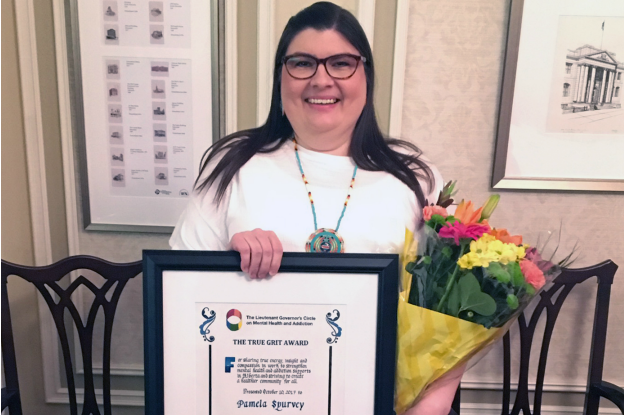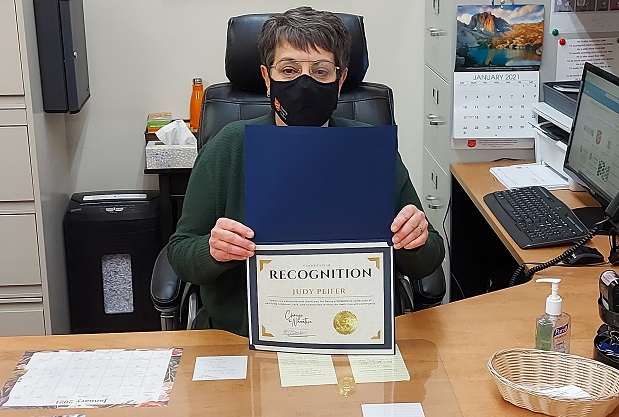Overcoming Trauma that Ran Deep

National Indigenous Peoples Day, held on June 21, celebrates the unique heritage, diverse cultures, and outstanding achievements of Canada’s Indigenous peoples. With this in mind, The Salvation Army honours Pamela Spurvey for turning her life around and improving the lives of others at The Salvation Army’s Addictions and Residential Centre in Edmonton, Alta.
Early Years
Pamela’s mother was an alcoholic, IV drug user, involved with gangs and the sex trade, and exposed her to a world of crime. From a young age Pamela was cared for by relatives and later placed in foster care. “Foster care was the most stability I ever had,” says Pamela.
When Pamela’s mother got sober, the children moved back home. But before long, there was once again physical and emotional abuse.
“I took my first drink at 16 to take away the pain and memories,” says Pamela. “I instantly became an alcoholic. The same happened with illicit drugs.”
Adult Years
Pamela was in and out of abusive relationships when a friend said, “Try this and you’ll feel better.” It was crack cocaine.
“Cocaine became my best friend,” says Pamela. “I was dealing drugs and involved in crime. I had to sign my kids away from a jail cell. I was completely broken.”
After her release, Pamela was homeless and in and out of hospital with suicide attempts. “When I lost my kids, I lost my will to survive,” says Pamela.
Pamela eventually became pregnant, but that didn’t change her lifestyle. “I was far gone in addiction,” says Pamela. “When the baby was two weeks old I tested positive for drugs and Malachi was taken away.”
Turning the Corner
“I was homeless and my oldest son took me in,” says Pamela. “That was my breaking point because it wasn’t right that my son had to take care of me. At the time I had charges that led me to a drug treatment program. That helped me reconnect with my Indigenous culture and dig myself out of the pit of despair I was in.”
Pamela graduated from the program and moved into Cornerstone, a transitional residence operated by The Salvation Army, which eventually became an addictions and residential centre.
“I work for The Salvation Army because they saved my life,” says Pamela. “They offered me counselling and taught me parenting skills. Because of these supports I got better and got my children back.
“The Salvation Army is key to my success in life and my ability to help the Indigenous community move from despair to hope.”
NOTE: Pamela recently received the Lieutenant-Governor’s Circle on Mental Health and Addictions True Grit Award, which honours successful efforts to reduce stigma, encourage recovery and strengthen programs and services in the area of mental health and addiction.

